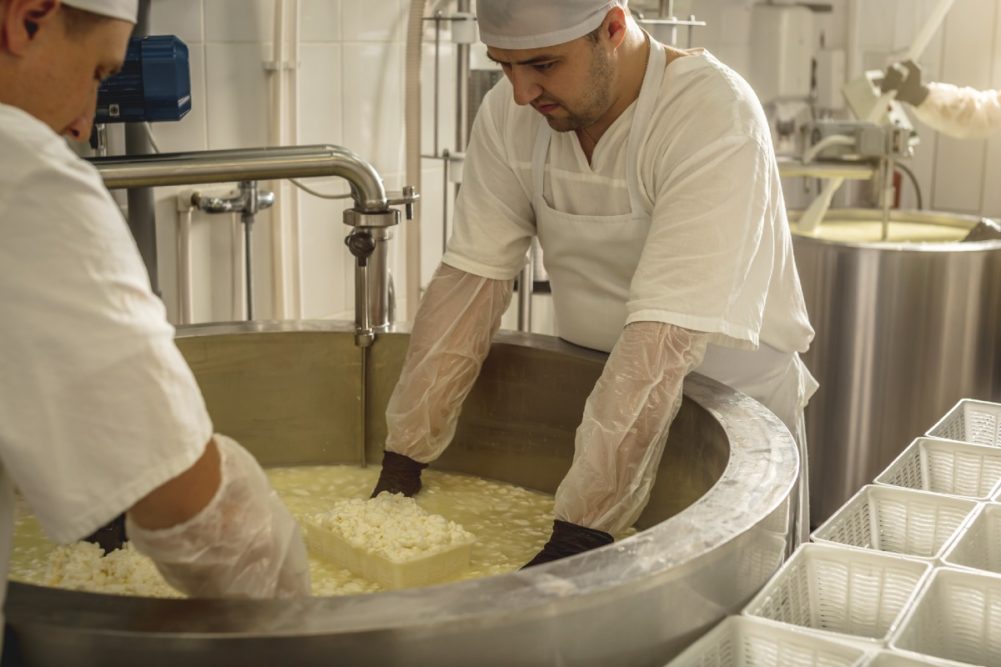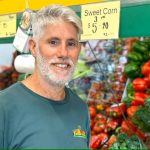
Turning the waste products of cheese manufacturing into useful and possibly even marketable products is closer to fruition, after the Burnett Dairy Cooperative was announced as a U.S. Department of Agriculture grant awardee for innovative plans that down the road may help with air travel, adhesive glue, or even start another local source for drinking water, if that engineering works out.
Burnett Dairy Cooperative’s efforts to mitigate their waste products has moved their research into new and exciting levels, so innovative that the USDA has awarded them a $100,000 grant through the Dairy Business Innovation Initiative (DBII) – a program created under the 2018 Farm Bill to help dairy businesses across the country grow, innovate, and reach new markets.
Among the latest recipients is the Burnett Dairy Cooperative in Grantsburg. Besides making a number of unique cheese and dairy products at their two cheese plants, they also have a full-service agronomy, feed, grain, propane, and retail stores.
But the disposal of some of that cheese waste stream is costly, and requires treatment to not affect groundwater, but using their first DBII grant, they’ve confirmed an alternative method to utilize waste streams from those two cheese plants to generate revenue instead of costing money to dispose of.
“We’re at the very beginning of this process,” stated Burnett Dairy CEO Matt Winsand, who is excited about the potential for their research into converting that waste into a product or products that may not be less damaging, but might be useful as a biofuel, animal feed, fertilizer or even more. Using their grant, they’ve shown they can convert waste products that costs big money to either convert or dump into something else entirely. “We want to convert it into a useful product!”
Their first DBII grant allowed them to prove they can do just that, Winsand confirmed. “That proved we can do it, to clean (waste) to well below DNR wastewater levels, which we’ll put in both (cheese production) locations.”
Their second round of USDA granting helped them define that product, which is approximately half fat and one-quarter protein, meaning it may have multiple future uses, from aviation fuel to feed products or even more.
“Maybe even as a compound to create a natural adhesive!” Winsand added. “Our goal is to not dump anything on the ground.”
The possible aviation fuel aspect seems to have helped the cooperative’s grant effort, and Winsand thinks it helps that they’re near the Twin Cities hub for Delta Airlines, as they work to maximize the usefulness of product they currently must pay to get rid of, with a grand plan of adding such a system to both of their cheeses production plants, which will not be cheap. Winsand thinks it would be costly to construct such a system at both facilities, but it may have another positive side effect, and a product everyone can use.
“It might cost $6 million to do both (production) factories,” Winsand said. “But it would basically be creating purified water!”
That water production may also be the start of an even more innovative long-term plan, to possibly be the tipping point for something entirely new, as Winsand said they might go in a whole different direction: “Maybe even creating a water cooperative!”
The future advances may depend, in part, on additional grant funding, which would likely get into the “matching grant” area, where the USDA would match what the Cooperative spends on the product, but that is further down the road.
If the research parses out, Winsand sees the Cooperative expanding into even more unique areas of business and may even offer their product as a fuel at their retail location, which would bring the cheeses production full circle.
“We’re trying to be frontrunner on this,” Winsand said, noting that they are continuing to seek additional grants to move that research forward. “Again, we’re at the very beginning of this process.”
The latest round of grant funding to dairy businesses across the state will be awarded through Wisconsin’s Dairy Business Innovation Initiative, which provides technical assistance and grants to dairy farms and businesses in Illinois, Iowa, Indiana, Kansas, Michigan, Minnesota, Missouri, Nebraska, Ohio, South Dakota, and Wisconsin.
According to U.S. Senator Tammy Baldwin, who was a sponsor of the original DBII program, the initiative has delivered nearly $40 million to support Wisconsin dairy businesses since its creation in 2018.
“My Dairy Business Innovation Initiative has helped Wisconsin dairy farmers, producers, and cheesemakers grow their operations, tap into new markets, and innovate new products,” Sen. Baldwin stated. “Traveling the state, I’ve seen firsthand the impact of this funding – from helping a local cheese processor triple production, to adding value to a seventh-generation dairy farm. (This) announcement is exciting news for Wisconsin – helping more dairy businesses get the resources they need to grow our economy and continue Wisconsin’s legacy of America’s Dairyland.”
– With information from the USDA, Sen. Baldwin’s office and the Burnett Dairy Cooperative
You can now read the most important #news on #eDairyNews #Whatsapp channels!!!
🇺🇸 eDairy News INGLÊS: https://whatsapp.com/channel/0029VaKsjzGDTkJyIN6hcP1K



















